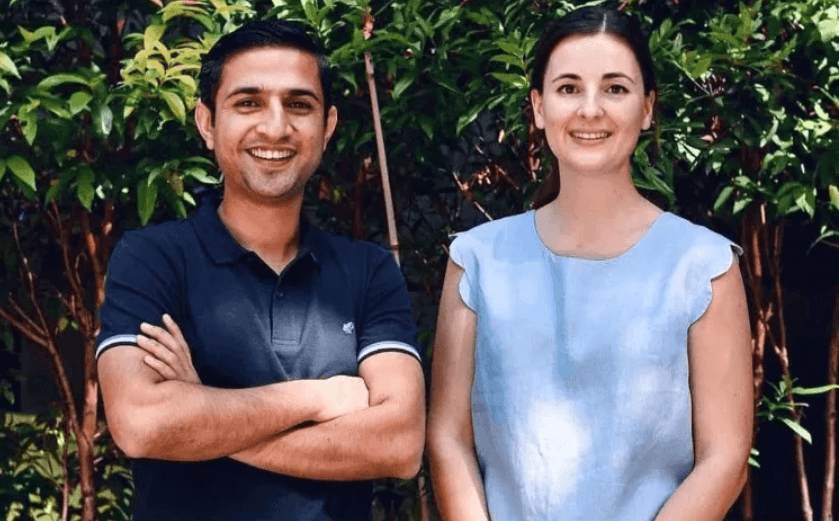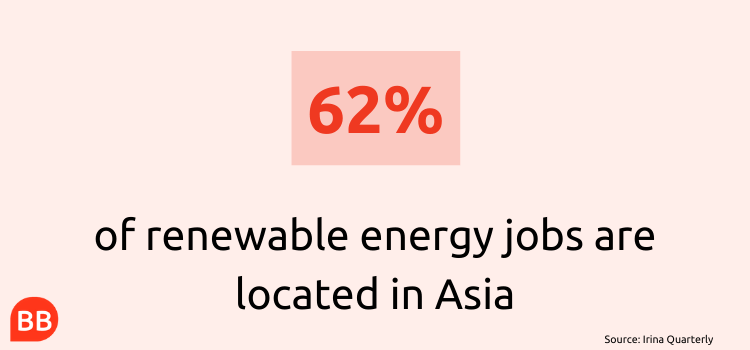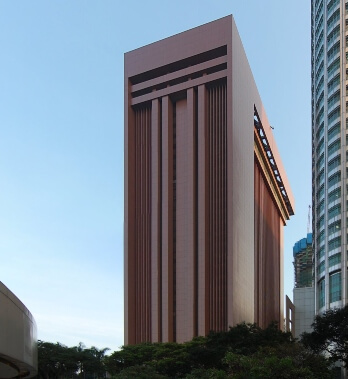Climate change has had a profound impact on the world. Global warming has triggered sea levels to rise at their fastest rate in 3,000 years, while global temperatures have been climbing by 0.18 degrees centigrade every decade since 1981.
In Asia, organizations are beginning to embrace sustainability targets, and work toward reducing their long-term environmental footprint in a number of ways.
The region’s business schools are well-placed to equip today’s professionals with the skills and insights they need to be part of the shift toward greener business.
Here are the three sustainability trends in Asia creating career opportunities for business school graduates.
1. Smart devices and the Internet of Things (IoT)

Josephine Stoker and Captur cofounder, Abdul Aziz
Over the last decade, internet-enabled devices like smartphones, wearable fitness trackers, and smart energy meters have helped individuals, companies, and even whole cities become more sustainable. In Asia, this tech is being put to good use through the development of ‘smart cities’—cities that leverage technology to improve operational efficiency, while improving quality of life and reducing environmental impact.
According to a McKinsey report, South East Asia’s smart cities have the potential to cut greenhouse emissions by around 270,000 Kilotons every year, through initiatives like air quality monitoring and energy use optimization.
This trend is creating ample opportunities for business school graduates with a passion for innovation. Schools like Singapore Management University’s Lee Kong Chian School of Business (SMU LKCSB) are encouraging students to consider corporate social responsibility as an integral part of their career, and are preparing graduates to take advantage of new technologies.
At SMU LKCSB, Master of Science (MSc) in Management students have the chance to study modules like Innovation Management, Entrepreneurial Mindset and Business Planning, which prepare them with the necessary skills to leverage opportunities in the tech space after graduating.
Josephine Stoker is one graduate leveraging what she learned at SMU to help businesses and individuals reduce their environmental impact.
Over the last few years, she has worked with her SMU peer, Abdul Aziz, to develop Capture—an app that allows users to track and reduce their carbon footprint.
Capture uses GPS tracking and a few simple questions to calculate how much carbon users emit through their food and travel habits. It also provides access to verified carbon offsetting projects that users can donate to in order to reduce their impact.
So far, the app has been a huge success. The average user cuts back their carbon emissions by 7.6% each year, Josephine reports. In the coming years, Josephine plans to roll out a corporate version of the app to help businesses cut their carbon footprint.
2. Renewable energy

According to research by the World Economic Forum, energy demand in South East Asia alone has grown by 80% since 2000.
Since traditional forms of energy production produce large quantities of carbon dioxide, renewable alternatives must grow quickly to meet this demand without wreaking havoc on the climate.
Energy companies are already working to meet this demand. Renewable energy production is growing faster in Asia than on any other continent, and by 2025, 23% of electricity in the ASEAN (Association of South East Asian Nations) is expected to come from green sources like hydropower, wind, and solar.
This fast development is creating a jobs boom—62% of the world’s renewable energy jobs are in Asia. The region is a promising landscape for business school graduates. Master’s in Management grads with an interest in energy can expect to land roles in project management, marketing, or finance for renewable energy firms.
3. Green investment
Finance is a popular industry for business school graduates in Asia, and 18% of MSc in Management graduates from SMU land jobs in the sector.
The emergence of ‘green’ investment—investment practices that aim to have a positive environmental impact—is creating even more opportunities for graduates with a flair for finance.
Singapore’s central bank recently hired Jeanne Stampe—former head of sustainable finance at the World Wide Fund for Nature (WWF)—as their green finance recourse lead, indicating a shift in direction for the country’s financial market.
In Hong Kong, too, the Hong Kong Monetary Authority (HKMA) has established a green finance steering group, to ensure finance companies disclose their environmental impact.
Companies will require investment professionals with a strong understanding of ESG. ESG—environmental, social, and corporate governance—refers to the three pillars considered when measuring the sustainability and societal impacts of an investment in a company or business.
According to a report by the Economist’s Intelligence Unit, 68% of investors intend to increase their investment in sustainable finance over the next year.
Business schools like SMU have a key role to play in preparing future finance leaders to recognize and grasp these opportunities. The MSc in Management offers plenty of electives that focus on sustainability in business, including sustainable finance.
As the global conversation around sustainability continues, these important trends will offer ample opportunities for business school graduates who want to make a difference.
Image above: Monetary Authority of Singapore building, © Nicolas Lannuzel via Wikimedia Commons under this license



